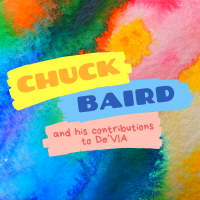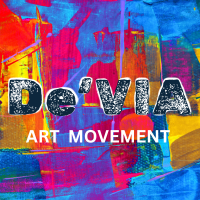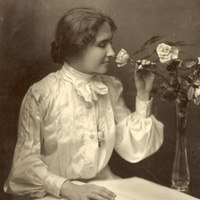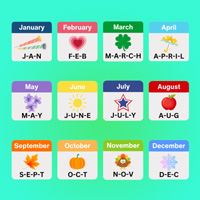All Articles
Signing Money
Want to learn how to sign money? Read the article for a quick tutorial that includes variations on signing dollars and cents.
Living Loud: Marlee Matlin — Academy Award Winning Actress
At age 21, Marlee Matlin became the youngest woman to receive the Academy Award for Best Actress in a Leading Role, and her star-power has shone brightly ever since. Read the article to learn more about this talented and inspiring deaf woman.
Signs That Are Close... But Not the Same — Money
This article is part of our “Signs That Are Close... But Not the Same” series, which highlights signs that look similar, but have different meanings. The signs discussed in this article include signs related to money: (1) Money vs. Buy, (2) Cent vs. Think, and (3) Sell vs. Sold
Signing Math Equations
Learn how to sign simple math equations by reading the article. See how to pay attention to your signing space for signing clear equations.
Chuck Baird and His Contributions to De’VIA
Learn about Chuck Baird, the "Father" of the De'VIA art movement formed by Deaf artists, and experience his creative and meaningful artwork.
Signs That Are Close... But Not the Same — Animals
This article is part of our “Signs That Are Close... But Not the Same” series, which highlights signs that look similar, but have different meanings. The signs discussed in this article include signs related to animals: (1) Animal vs. Have vs. Vacation vs. Day Off, (2) Horse vs. Rabbit vs. Cow, (3) Cow vs. Buffalo vs. President vs. Deer vs. Moose, (4) Pig vs. Dirty vs. Grass, (5) Mouse vs. Rat vs. Rose, (6) Duck vs. Bird vs. Tattletale, (7) Lion vs. Tiger, (8) Bear vs. Hug vs. Love, (9) Snake vs. Look vs. Spicy, (10) Mosquito vs. Nosy, (11) Cat vs. Expert.
The De'VIA Art Movement
De'VIA is an art movement formed by Deaf artists to express their Deaf experience. Read the article to learn about De'VIA's formation, history, inspiration, subject matter, and much more.
Living Loud: Chuck Baird - Artist and Founder of De'VIA
Chuck Baird was an artist whose works captured the beauty and rich details of the world around him, as well as signifying the rich beauty of Deaf culture.
Signs That Are Close... But Not the Same — U.S. States
This article is part of our “Signs That Are Close... But Not the Same” series, which highlights signs that look similar, but have different meanings. The signs discussed in this article include U.S. state signs: (1) Alaska vs. Hawaii vs. Beautiful vs. Pretty vs. Face, (2) Arizona vs. Twin vs. Twin (another variation) vs. Restaurant vs. Cafeteria, (3) California vs. Gold vs. Silver vs. Phone vs. Call vs. Why, (4) Colorado vs. Color vs. Hot (as in, "spicy hot") vs. Hot ( as in, "temperature hot") vs. Friendly vs. Cool (as in, "weather or low temperature"), (5) New York vs. Subway vs. Practice vs. Wash (as in, "washing a surface") vs. Train (as in, "the form of transportation") vs. Movie, (6) Texas vs. Detroit vs. Indianapolis vs. Rochester vs. Philadelphia vs. Kalamazoo vs. Flint vs. Chicago, (7) Texas vs. Need vs. Phoenix, (8) Washington vs. Oregon vs. Cadillac (as in, "the car") vs. Boss, and (9) West Virginia vs. Virginia vs. West vs. Wednesday vs. Right (as in, "the direction")
Name Signs: What Are They and How Does a Person Get a Name Sign?
What is a name sign, how do you use it in conversation, and how are name signs given? Read the article to find the answers.
ADVERTISEMENTS

















